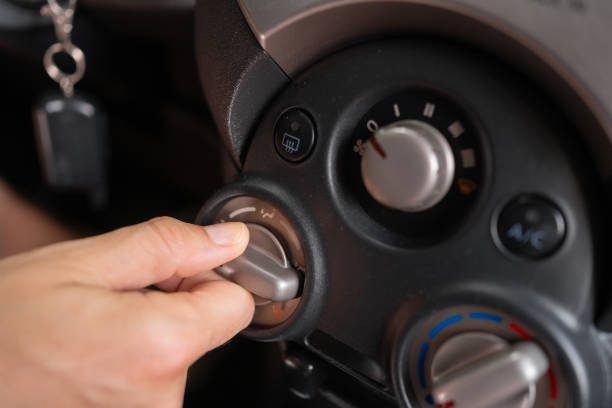July 9, 2024
What makes your car heat up faster?
- High Engine RPM: Running the engine at higher RPMs (revolutions per minute) generates more heat.
- Heavy Load: Carrying heavy loads or towing can cause the engine to work harder and produce more heat.
- Driving Conditions: Stop-and-go traffic or driving uphill can lead to increased engine temperature due to constant acceleration and deceleration.
- Cooling System Issues: Problems with the radiator, coolant levels, water pump, thermostat, or hoses can hinder the cooling system’s efficiency, causing the engine to overheat.
- Air Conditioning: Using the air conditioning puts additional strain on the engine, which can contribute to overheating.
- External Temperature: High ambient temperatures can cause the engine to heat up more quickly, especially if the cooling system is not functioning optimally.
- Radiator Fans: Malfunctioning radiator fans or a failed fan motor can prevent proper cooling, causing the engine to overheat.
- Oil Levels: Low or degraded engine oil can lead to increased friction and heat generation within the engine.
- Thermostat Issues: A stuck thermostat can prevent coolant from circulating properly, leading to overheating.
- Clogged Radiator: A radiator clogged with debris or rust can reduce its efficiency, causing the engine to overheat.
Ensuring regular maintenance and addressing any issues with the cooling system promptly can help prevent your car from overheating.
What is a car heater called?
A car heater is commonly referred to simply as a “car heater” or “vehicle heater.” It is part of the vehicle’s heating, ventilation, and air conditioning (HVAC) system. The main components of the car heater include the heater core, blower motor, and associated controls and ducting. The heater core acts as a small radiator that uses engine coolant to produce warm air, which is then blown into the cabin by the blower motor.
Does a car heater need coolant?
Yes, a car heater needs coolant to function properly. The car heater works by using the heat from the engine’s coolant. Here’s how it works:
- Coolant Circulation: Coolant circulates through the engine to absorb heat, keeping the engine at an optimal operating temperature.
- Heater Core: The hot coolant is then directed to the heater core, which is a small radiator located inside the car’s dashboard.
- Heat Transfer: Air from the car’s ventilation system is blown over the heater core, where it picks up the heat from the hot coolant.
- Warm Air: The heated air is then directed into the car’s cabin, providing warmth.
If the coolant level is too low or if there is an issue with the coolant system (like a leak or a malfunctioning water pump), the heater will not be able to produce warm air effectively. Regular maintenance of the coolant system is important for the proper functioning of both the engine cooling and the car heater.

